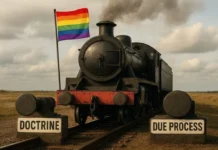The Church of England has announced a further delay to the publication of its review of abuse by John Smyth QC. The church says that the review, which was originally scheduled for publication next month, will now be completed in “early 2021” and published some time later. The postponement, which was announced on the Church of England’s website, is the second time that the date has been put back.
The first announcement of a review was made by the Lead Bishop for Safeguarding Peter Hancock on the day of Smyth’s death in August 2018. It was a further 12 months before a reviewer was appointed, and Terms of Reference were announced in August 2019. At that stage the review was expected to last nine months. The church later revised the Terms of Reference to accommodate the fact that work on the review had not started until October 2019.
In a note to some victims yesterday, the reviewer Keith Makin said that “The response from victims and survivors as well as many other interested parties and organisations to our request for information has been immense. The timescale change reflects this as we continue to receive new lines of enquiry to investigate along with vast amounts of written materials and individual accounts.” He said that the difficulties caused by Covid-19 are not currently a factor in the timing of the review.
Victims’ advocate Andrew Graystone said “This review is the last opportunity for Smyth’s victims to receive some form of justice, so the additional delay will be difficult for them. Hopefully it is a sign that the Church of England is coming to terms with the scale of abuse, and the extent to which it is embedded in the church.”
If the review is completed in 2021 it will be almost a decade since the abuse was first reported to the Church of England, and almost forty years since it was first brought to the attention of the Iwerne Trust. Parallel reviews into John Smyth’s abuse are being conducted by Winchester College and Scripture Union. The experts conducting those reviews were not informed in advance of the decision to extend the Church of England’s review.
Andrew Graystone



